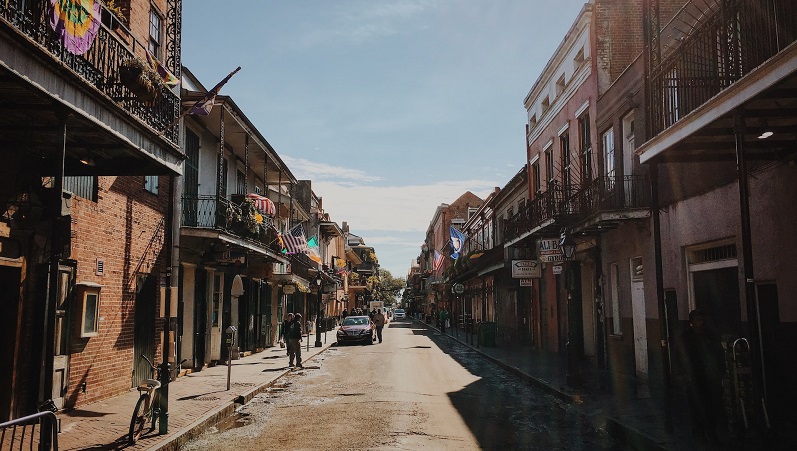Historic and architecturally stunning, laden with parks and world-class restaurants, the French Quarter is an attractive locale at any time of the year, but it shines during Carnival season, when parades roll down its streets and the entire world seems to beat a path to its cypress doors. Whether you’re a frequent visitor who wants to invest in a pied a terre to offset hotel costs or a local who wants a primary residence, it’s hard to beat the culture you’ll find in the Vieux Carre. But there are a few quirks that make buying in there different from buying in other neighborhoods, according to Satsuma Realtors real estate agent Buddy King, and a few guidelines to keep in mind.
It’s crucial to know not only what amenities you want (pools, courtyards and balconies are common requests, King said), but also the vibe you’re looking for. People seeking proximity to a robust nightlife scene might want to live on or near Bourbon Street, while those seeking a more residential feel could settle near oak-lined Esplanade Avenue. Most buildings are walk-ups without elevators, which could be a deterrent for buyers with mobility issues. A knowledgeable real estate agent will help you find the right spot for you while sticking to your budget. They’ll also help you navigate the French Quarter’s hidden expenses. Expect to pay $125 to $1,627 in HOA fees a month and $140 to $300 for a parking contract if your residence doesn’t come with its own assigned space.
Most real estate for sale in the Quarter consists of condos–about 83% percent, according to King. Condo owners are responsible for everything in the property from the drywall in (hot water tanks, air conditioning systems, etc.). But everything from the studs out is paid for by the condo association reserves, so it’s good to make sure that fund is adequate and that the building doesn’t need any costly new repairs.
“Be aware of condo association reserves and that they have money for unforeseen events or maintenance,” King said. “I have seen some that have very limited resources as far as reserves. In the event of a big repair, that will be divided among owners as a one-time payment to cover the costs.”
Condo associations also come with rules, which may pertain to pet policies, pool and courtyard access, or noise. Length of lease restrictions may be a rude awakening for potential owners wishing to rent their property out when they’re not in it.
“Most condo associations set a minimum for the length of lease on the property, typically 90-100 days,” King said.
French Quarter prices spiked in 2016, before short-term rentals were outlawed everywhere in the French Quarter except for a stretch of Bourbon Street, King said. Now that investors have looked elsewhere for abodes with short-term rental potential, French Quarter prices have stabilized. For long-term landlords, the average monthly rent is $ 1,174 per month for a French Quarter studio; $1,494 per month for a one-bedroom, $ 2,232 per month for a two-bedroom and $ 5,014 for properties with three bedrooms and up.
Whether they are part- or full-time residents, French Quarter denizens find themselves embraced by New Orleans’ warm, welcoming culture, and that may be the neighborhood’s biggest selling point.
“You’re getting so much accessibility and walkability,” King said. “You get to know a bunch of neighbors and have common bars and eateries you go to. The community is very strong, even for clients who use properties as a second home. That’s a big appeal.” to its cypress doors.
